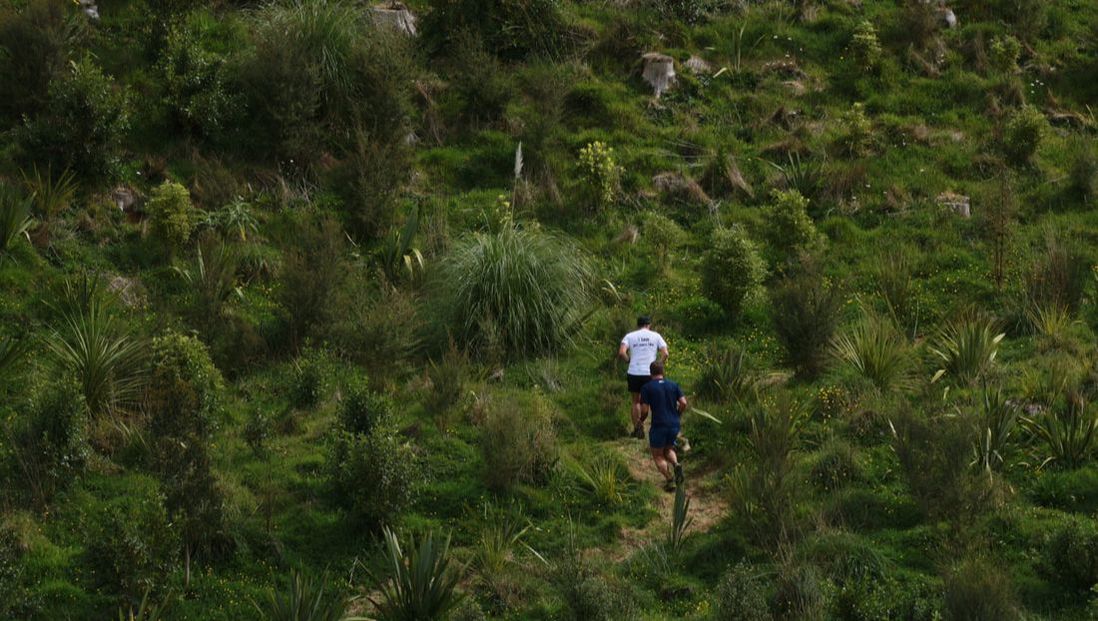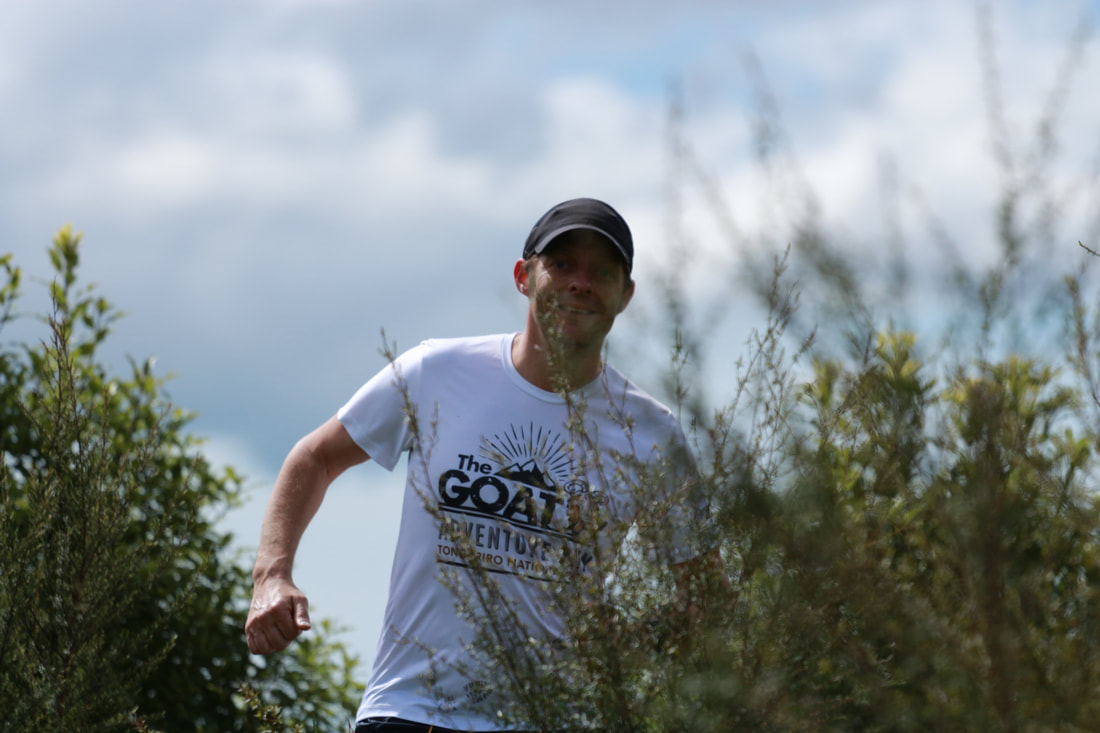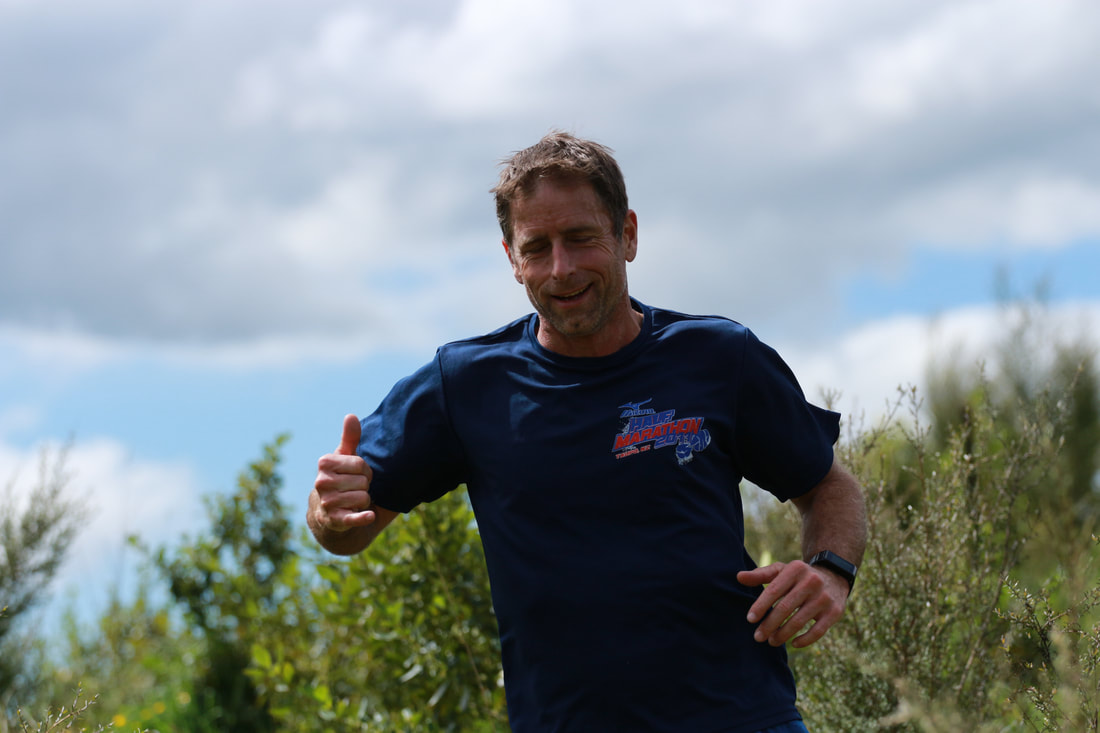With the Abel Tasman Coastal Classic, Taupo Ultra-Marathon, Crater Rim Ultra and various other events happening this weekend, here are my last minute tips for those taking on trail events.
1. Temperature. It is looking like being quite cold for most of you. Some might see this as a negative, I think it is a massive positive, as it is much easier to stay warm than cool down. To that end, you need to make sure you have enough layers to stay warm (and dry), for those with compulsory gear requirements, this should be seen as your 'minimum' required gear, if it is going to be cold/wet, don't be afraid to take an extra pair of gloves, or an extra thermal or whatever you need. If you get cold this will be physiologically and psychologically detrimental.
2. Non-Negotiable Commitment to Finish. You should start your event with a non-negotiable commitment to finish. Why? Because I can almost guarantee that each and every one of you will have periods when the unicorns and rainbows disappear and you wonder whether you should pull the pin. How you deal with these periods will define the success of your event. My advice is to tune into whatever is troubling you, ask yourself if it is something that needs to be dealt with. If not, keep/start moving in the direction of the finish line, and find a strategy to tick of the next kilometre.
If you can't have the non-negotiable commitment to finish, because you are not 100% healthy, then I would suggest that you should be having a good hard look in the mirror and asking yourself whether you should actually be starting the event.
3. Intensity. Understand the maximum intensity that you will be able to maintain for the duration of your event. Monitor your intensity in as many different ways as you know how. In my opinion, you are better to be too conservative early on, and be hunting people down in the final quarter of an event, rather than being too bold early on, and be losing the will to live in the final quarter of an event.
4. Food/Drink Consumption. Beyond getting your intensity wrong, one of the things most likely to derail your success in an event is gastro-intestinal (GI) distress. Seemingly the longer we go, the greater the prevalence of GI distress. One of the major issues is that we have very little idea of how your stomach will react to various foods/fluids after many hours of running. My suggestion is that you eat and drink to thirst. When you do so, consume a small amount, and then give your body an opportunity to react before consuming a little more. With this strategy, when you consume a small bite of banana, and your stomach decides that it doesn't want to tolerate banana, you'll have a small challenge. Consume the whole banana and you potentially have GI issues for hours. I would also suggest that you drink your fluid, and eat your food, rather than trying to drink your food.
5. The Aid Station Magnet. Have you ever noticed that people very rarely withdraw from events between aid stations. Aid stations are like magnets for people who are feeling like death warmed up. The longer you spend in those places, the stronger that magnet becomes. Before you get to an aid station have a plan for what you need. Grab what you need and start walking. In the 10min it takes to reorganise your backpack and consume some food you'll be another kilometre closer to the finish line.
2. Non-Negotiable Commitment to Finish. You should start your event with a non-negotiable commitment to finish. Why? Because I can almost guarantee that each and every one of you will have periods when the unicorns and rainbows disappear and you wonder whether you should pull the pin. How you deal with these periods will define the success of your event. My advice is to tune into whatever is troubling you, ask yourself if it is something that needs to be dealt with. If not, keep/start moving in the direction of the finish line, and find a strategy to tick of the next kilometre.
If you can't have the non-negotiable commitment to finish, because you are not 100% healthy, then I would suggest that you should be having a good hard look in the mirror and asking yourself whether you should actually be starting the event.
3. Intensity. Understand the maximum intensity that you will be able to maintain for the duration of your event. Monitor your intensity in as many different ways as you know how. In my opinion, you are better to be too conservative early on, and be hunting people down in the final quarter of an event, rather than being too bold early on, and be losing the will to live in the final quarter of an event.
4. Food/Drink Consumption. Beyond getting your intensity wrong, one of the things most likely to derail your success in an event is gastro-intestinal (GI) distress. Seemingly the longer we go, the greater the prevalence of GI distress. One of the major issues is that we have very little idea of how your stomach will react to various foods/fluids after many hours of running. My suggestion is that you eat and drink to thirst. When you do so, consume a small amount, and then give your body an opportunity to react before consuming a little more. With this strategy, when you consume a small bite of banana, and your stomach decides that it doesn't want to tolerate banana, you'll have a small challenge. Consume the whole banana and you potentially have GI issues for hours. I would also suggest that you drink your fluid, and eat your food, rather than trying to drink your food.
5. The Aid Station Magnet. Have you ever noticed that people very rarely withdraw from events between aid stations. Aid stations are like magnets for people who are feeling like death warmed up. The longer you spend in those places, the stronger that magnet becomes. Before you get to an aid station have a plan for what you need. Grab what you need and start walking. In the 10min it takes to reorganise your backpack and consume some food you'll be another kilometre closer to the finish line.






